JournalismPakistan.com | Published October 02, 2018
Join our WhatsApp channel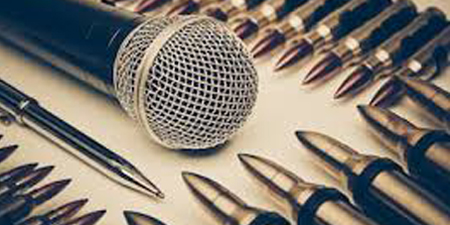
ABBOTTABAD – The Federal Executive Council of the Pakistan Federal Union of Journalists (PFUJ) on Tuesday issued the Abbottabad Declaration that says the new government was ignoring the issue of self-censorship imposed by state institutions.
The declaration says that while the government has no role in this unannounced censorship yet its silence speaks of cooperation in this matter. “Despite widespread protest on this issue, both inside and outside the country, the new government is just ignoring the issue.”
The PFUJ said that the government was avoiding confronting the institutions which are systematically trying to silence the print and electronic media through coercion, control on advertisements, harassment and even carrying out attacks on journalists.
“In order to control the media, a state institution has even set up several radio stations as well as television channels through front men while it has even embedded journalists in private channels and print houses,” reads the declaration.
It said that distribution of many national newspapers was being hampered in cantonment areas while leading channels are being taken off-air or the cable operators forced to change the numbering of some top channels – all to control the media houses through these coercive methods.
The three-day FEC meeting in Abbottabad noted that journalists were not being allowed to report independently either in Balochistan or in the tribal areas where they are kept away from conflict zones in the name of security.
Dozens of journalists have been harassed, attacked and even killed in Pakistan but the intelligence agencies in this country have not even traced the perpetrators of these attacks.
The house also pointed out that resistance journalism was even dying its natural death because of the prevailing situation and most journalists and media houses have started imposing self-censorship to avoid the wrath of state institutions.
The declaration said that another reason for the debacle of freedom of expression is the corporatization of the media. The media owners have taken charge as editors and chief editors and thus the institution of editor which has played an essential role in the freedom of press and freedom of expression has been eliminated.
The meeting observed that the Parliament had failed to put up resistance and force the government to ensure freedom of expression without which democracy becomes a farce.
The union leaders and members believe that journalists in particular and the society as a whole are scared of elements either holding guns or claiming to be religious godfathers. The meeting said that the judiciary had provided no relief to journalists in cases where media workers have been kidnapped, harassed or physically attacked.
The PFUJ called on all political parties present in the National Assembly and Senate to form a parliamentary committee comprising members from both houses to consider threats being faced by Pakistani media and the unannounced censorship imposed on media before it is too late.
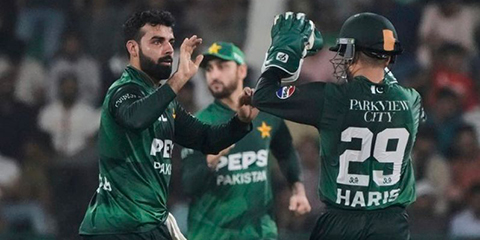
June 11, 2025: Pakistan celebrated a narrow win over Bangladesh, but beneath the jubilation lies a deeper crisis—from sidelined veterans to a collapsing domestic structure—signaling an urgent need for cricket reform.
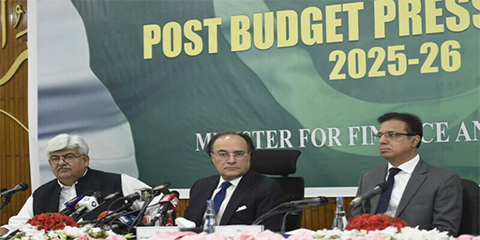
June 11, 2025: Journalists walked out of the post-budget press conference in Islamabad to protest the absence of a technical briefing and the government's dismissive behavior, calling it unacceptable and intolerable.
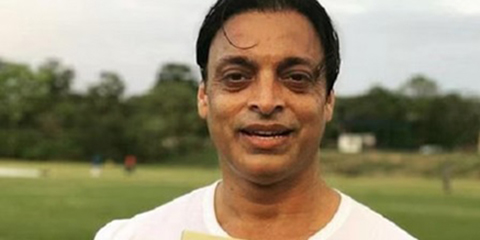
May 31, 2025: Dr. Nauman Niaz has issued a defamation notice to Shoaib Akhtar over derogatory remarks made during a recent broadcast, reigniting a longstanding media feud between the two prominent figures in Pakistan.

May 30, 2025: The Human Rights Commission of Pakistan has demanded the full repeal of PECA, citing its vague language, coercive powers, and threats to free speech and digital rights in Pakistan.
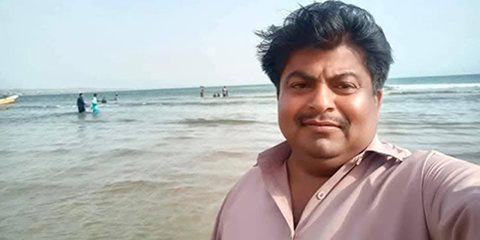
May 30, 2025: The Pakistan Federal Union of Journalists (PFUJ) has condemned the murder of journalist Syed Mohammed Shah in Jacobabad, calling for urgent justice and improved safety for media professionals in Sindh.

May 26, 2025: In Rawalpindi, police allegedly side with Jang Group to block 66 reinstated employees from resuming work despite court orders, drawing sharp criticism from unions and press freedom advocates.
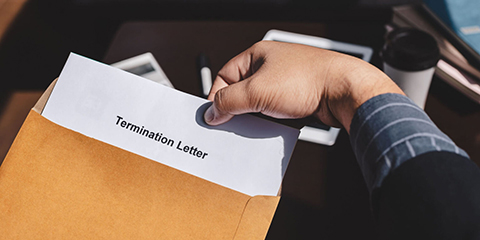
May 25, 2025: PFUJ condemns the Jang Group's decision to dismiss over 80 employees in Rawalpindi, calling it an 'economic massacre.' The union warns of nationwide protests if workers are not reinstated.
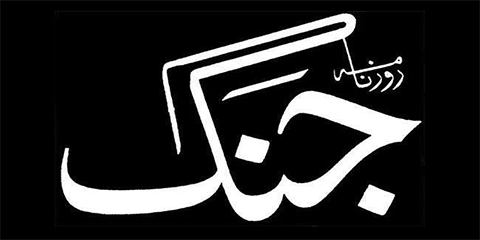
May 25, 2025: Daily Jang Rawalpindi has terminated over 80 employees, including female staff, despite multiple court rulings in their favor—raising concerns over labor rights violations and misuse of authority in Pakistani media.
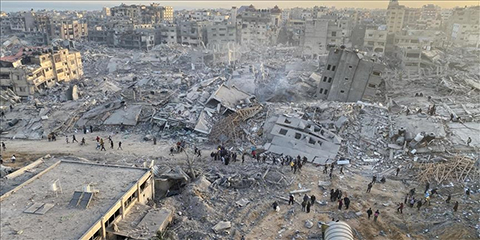
May 19, 2025 PJS reports 219 Palestinian journalists killed in Israeli attacks since October 7, with 30 women among the victims. Over 430 were injured and 685 family members were killed. Read more on the systematic targeting of media in Gaza.

May 15, 2025 Discover the legacy of Samiullah Khan, Pakistan’s legendary "Flying Horse," whose breathtaking speed and artistry redefined hockey. From Olympic glory to World Cup triumphs, his story is one of myth, movement, and magic.
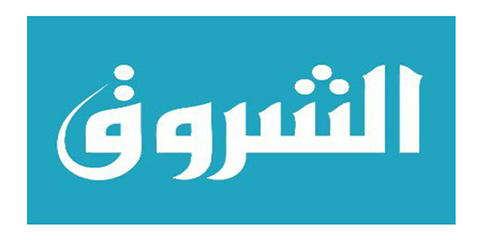
May 04, 2025 Algerian authorities suspend Echorouk News TV for 10 days after it used a racist slur against African migrants. ANIRA demands an apology, calling it a violation of human dignity.

May 04, 2025 NCHR and MMfD launch a journalism fellowship to train reporters on digital rights & gender inclusion in Pakistan. Supported by UNESCO, this initiative aims to bridge the gender digital divide. Apply by May 15, 2025!
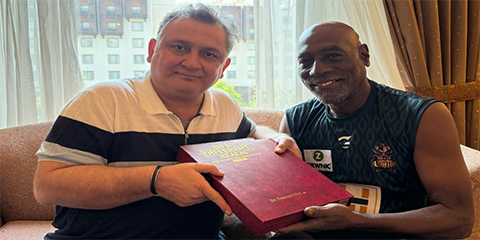
April 23, 2025 Discover Dr. Nauman Niaz’s In A Different Realm: Story of Quadruple & Triple Centuries 1876–2025, a profound exploration of cricket's most monumental innings, blending historical analysis with poetic narrative.